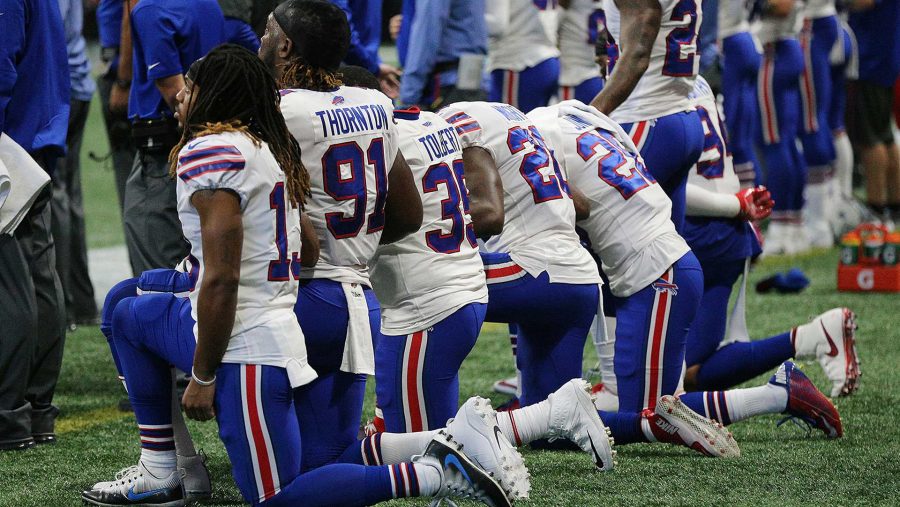Football season is right around the corner, and to prepare for it, the NFL recently decided to table its controversial national-anthem policy. Now that it has retracted its universal one-size-fits-all policy of barring players from kneeling during the national anthem before games, what should the NFL do to address players’ right to protest? What will the NFL ultimately decide to do?
Perhaps doing nothing at all is the answer. That is to say, maybe the NFL shouldn’t have a policy at all. In all actuality, having no policy might be the best policy.
To preface my argument, it’s first useful to know why the NFL decided to enact a national-anthem policy in the first place. As you may recall, last season, numerous players opted to protest during the national anthem that customarily plays before kickoff. This was a way to express their discontent with perceived racial policing injustice and to raise awareness of their cause. Players who took a knee were engaging in peaceful protest. However, to some this act of protest was seen as disrespecting to the many men and women in the armed forces, who fight to defend our country. Thus, this perfectly legal act of civil disobedience became a highly divisive issue enraging many.
Therefore, in May, the NFL decided to address the divisive issue by enacting a policy stipulating that all players and team personnel had to either stand for the anthem or remain in the locker room. In other words, kneeling would no longer be allowed. But in the face of brutal outcry over the past two months from the NFL Players Association, the NFL dropped the policy.
Nonetheless, just because the policy has been tabled, the issue is far from over. A joint statement from the NFL and NFLPA states, “No new rules relating to the anthem will be issued or enforced for the next several weeks while these confidential discussions are ongoing.” Reading between the lines, it sounds as if this means that the NFL hopes to craft a new policy that is more palatable to the Players Association.
I believe that doing so — crafting a new policy — would be a bad move for the NFL. It would not solve the problem at all. It would just amount to putting a Band-Aid on a deep wound.
Instead, I think the NFL would be wise to take more of a decentered approach to player protest. Similar to the NBA, the NFL should let players protest. They should let players and teams decide whether they want to protest instead of trying to rule with an iron-fist demanding a unified image.
Banning or limiting players’ right to protest would be welcomed by those who perceive the anthem protests as disrespectful. Meanwhile, pleasing these people would come at the expense of angering those who empathize with the players in their right to peaceful protest for their cause. Hence, doing something about the protests would essentially be a lose-lose for the NFL.
Doing nothing, on the other hand, would be a win-win. By not having a policy about players protesting, the NFL doesn’t have to pick a side. It doesn’t have to upset half of its fans.
This decentered approach of having no policy would let each player and each team decide whether they want to protest.










